MercoPress. South Atlantic News Agency
Tag: Falklands referendum
-
Sunday, December 8th 2013 - 22:08 UTC
Praise for Falklands world-wide diplomacy
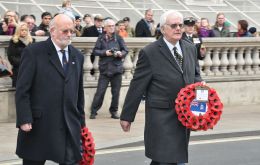
Falkland Islanders have been praised for their international campaign of diplomacy explaining their democratic credentials to the world and proclaiming their overwhelming referendum vote for self-determination and retaining their links with the United Kingdom.
-
Friday, November 29th 2013 - 07:08 UTC
Falklands oil exploration exposed to jail and fines according to Argentine law
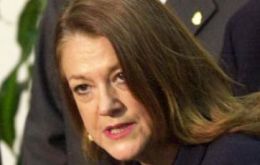
Argentina has threatened oil firms seeking to operate off the Falkland Islands with 15-year jail terms, huge fines and confiscation of assets in a fresh salvo in the dispute with Britain over South Atlantic islands sovereignty. But UK reiterated that Argentine law does not apply to Falklands or British Overseas Territories.
-
Thursday, November 28th 2013 - 10:04 UTC
Falklands' referendum receives praise and is shown as an example for other Overseas Territories
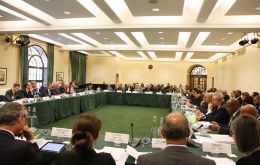
Praise for the Falkland Islands last March referendum and encouragement for other Overseas Territories to hold similar referendums on their future, was included in the final communiqué from the annual UK/British Overseas Territories joint Ministerial Council held this week in London.
-
Friday, September 20th 2013 - 07:27 UTC
Falklands’ referendum, ‘credibility plus’ for Islanders say impressed Panamanian political delegation
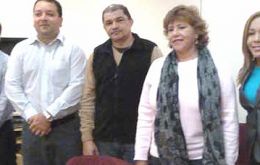
The Falkland Islands referendum of last March gave credibility to the Islanders’ position in their political cause according to a multi party delegation of visiting Panamanian parliamentarians, reports the latest edition of the Penguin News.
-
Tuesday, September 17th 2013 - 06:45 UTC
Falklands receives visit of lawmakers from Panama’s National Assembly
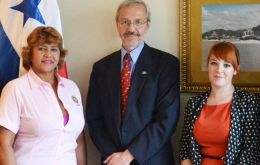
A group of Panama National Assembly members has arrived in the Falkland Islands for a week long visit. The party is headed by Foreign Affairs Commission president Dalia Bernal and includes Yaniel Abrego, president of the Education Commission, lawmaker Renaul Dominguez and Jorge Gantes legal advisor of the Foreign Affaris Committee.
-
Saturday, September 7th 2013 - 01:41 UTC
Falklands’ referendum recognized by CPA members and South Africa as ‘free and fair’
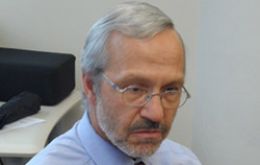
The Commonwealth Parliamentary Association during its conference in Johannesburg noted a motion recognising the Falkland Islands Referendum as a free and fair expression of the Falkland Islanders wishes and their right to Self-Determination.
-
Monday, September 2nd 2013 - 19:23 UTC
Falklands’ lawmaker underlines that “self-governance” is achievable and points to March referendum

Falkland Islands’ lawmaker Roger Edwards said that ‘self-governance or sovereignty was achievable’ and pointed out to the March 2013 referendum when an overwhelming majority of the Falklands’ people decided to support the current sovereign status.
-
Friday, August 23rd 2013 - 23:12 UTC
Falklands’ oil companies banned 20 years from operating in Argentina by Cristina Fernandez
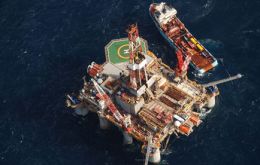
Four London AIM listed oil companies carrying out exploration work in Falkland Islands waters have been barred from operating in Argentina. The measure affects Borders & Southern Petroleum, Desire Petroleum, Argos Resources and Falkland Oil and Gas.
-
Tuesday, August 20th 2013 - 23:26 UTC
Malvinas debate: Ambassador Castro describes PM Cameron as ‘a fool and completely useless’

During a debate on the “Malvinas Question”, Argentine ambassador to the United Kingdom Alicia Castro launched a strong attack on Prime Minister David Cameron describing him as “a fool, dumb, and completely useless” politician, because of his comments when the election of Pope Francis.
-
Tuesday, July 30th 2013 - 02:40 UTC
Falklands at C24: ‘Alejandro Betts misrepresents’, says Professor Willets
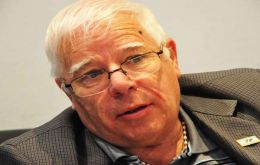
Mr. Alejandro Betts spoke on 20 June this year at the UN Special Committee on Decolonisation, as a petitioner on the “Falklands (Malvinas) Question.” It has been brought to my attention that his speech included a highly distorted account of my visit to the Islands to observe the referendum on behalf of the South Atlantic Council.
